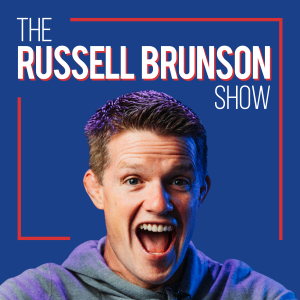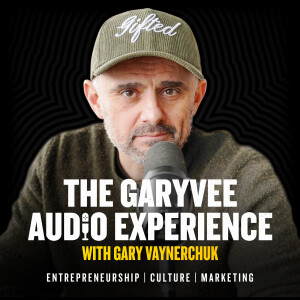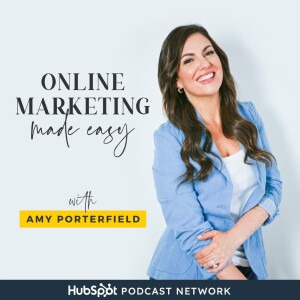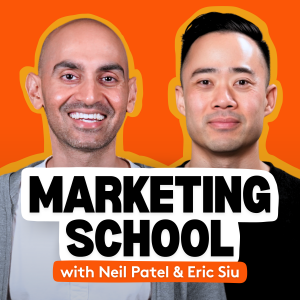
Episode List

The AI Rant: A Nuanced Rebellion Against Digital Sleepwalking
Steve sets the scene with a restaurant analogy that cuts to the heart of our AI dilemma: magnificent handcrafted hamburgers versus mass-produced alternatives both serve purposes, but only when we choose consciously rather than defaulting to whatever feels easiest. The conversation examines three fundamental human vulnerabilities that make us susceptible to AI’s false promises: our brain’s natural inclination toward energy conservation, our addiction to novelty, and our susceptibility to constant flattery from systems designed to keep us engaged. David and Steve navigate practical applications whilst questioning the deeper implications of surrendering human capabilities to machines that smooth corners and aim for statistical averages. The episode concludes with Steve’s original songs performed by his AI band, demonstrating how technology can amplify human creativity without replacing the essential elements that make work worth discussing. NOTE: This is a special twin episode with The Adelaide Show Podcast, where it’s episode 418. That version also includes Steve doing a whisky tasting with ChatGPT and an extra example of music. Get ready to take notes. Talking About Marketing podcast episode notes with timecodes 05:30 Person This segment focusses on you, the person, because we believe business is personal.When Our Brains Become Willing Accomplices Drawing from cognitive science research, particularly Andy Clark’s work on how our brains consume roughly 25% of our body’s energy when fully engaged, Steve explains why we’re naturally drawn to labour-saving devices. This isn’t laziness in any moral sense but evolutionary economics. Our brains scan constantly for energy-saving opportunities, making us vulnerable to tools promising effortless results. The conversation takes a revealing turn through Roomba territory, where users spend 45 minutes preparing homes for devices supposedly designed to save time. This perfectly captures our moth-to-flame relationship with technological solutions that often create more work than they eliminate. Steve shares his experience with Scribe’s advertising, which promises instant instruction creation but reveals a deeper cynical edge: the suggestion that human staff become unnecessary when AI can document processes. David counters with the reality that effective training requires demonstration, duplication, and iterative improvement, not just faster documentation. The hosts examine AI’s flattery problem, drawing from Paul Bloom’s insights on “sycophantic sucking up AIs” programmed to constantly affirm our brilliance. Loneliness and social awkwardness serve as valuable signals motivating us to improve human interactions. When AI tools eliminate these discomforts through endless validation, we risk losing feedback mechanisms that enable genuine social competence. Steve proposes “AI stoicism”: regularly practicing skills without technological assistance to maintain fundamental competencies. His navigation experience in a car without GPS demonstrates how these skills return quickly when needed, but only if developed initially. David emphasises that effective AI use requires existing competence in underlying tasks, otherwise how can we evaluate whether AI produces acceptable results. 20:00 Principles This segment focusses principles you can apply in your business today.Three Frameworks for Thoughtful AI Use AI as Amplifier, Not Replacement Steve describes using AI for comprehensive research in unfamiliar fields, where tools help survey landscapes and identify unexpected angles whilst he maintains control over evaluation and direction. David introduces emerging AI tutor mode, where tools provide university-level guidance for learning new skills, requiring discipline to engage with learning rather than simply requesting answers. The conversation explores how AI works best when enhancing existing capabilities rather than substituting for them. Recent developments show AI can help people achieve higher productivity levels, but only when users already understand quality standards and can direct the technology appropriately. Preserve the Rough Edges Steve’s observation that AI tools “smooth corners” and “kill what’s weird” by aiming for statistical averages creates fundamental tension with unexpected breakthroughs driving cultural and business innovation. The hosts examine how LinkedIn posts increasingly follow predictable AI-generated patterns, creating plastic uniformity that makes individual voices harder to distinguish. They discuss Trevor Goodchild’s observation about em dashes becoming telltale signs of AI writing, forcing writers to self-censor legitimate punctuation choices to avoid appearing automated. This represents troubling inversion where human expression adapts to avoid mimicking machines. David emphasises the importance of outliers and rebellion against bland midpoint solutions that AI naturally produces. As someone who experiences the world differently, he advocates for maintaining perspective that challenges majority assumptions rather than accepting AI’s tendency toward statistical averages. Understand the Trade-offs Every AI implementation involves conscious choices: convenience versus skill development, speed versus thoughtfulness, efficiency versus originality. Steve argues that making these trades consciously represents responsible use, whilst unconscious default to convenience leads toward dystopian visions. The key lies in maintaining awareness of tensions and choosing to prioritise learning and expertise development at least half the time. This ensures retaining capability to evaluate AI output and maintain competitive advantage in increasingly automated landscapes. David references the importance of questioning choices regularly, drawing parallels to behavioural ethics where awareness of tension prevents sliding into problematic defaults. 40:00 Problems This segment answers questions we've received from clients or listeners.Digital Agents and Plastic Communication The conversation turns to emerging AI agents promising to book concert tickets and make restaurant reservations by accessing bank accounts, calendars, and emails. Steve warns this creates dangerous vulnerabilities when human scammers already exploit systems, imagining AI scammers with similar access. David notes recent developments where AI tools clicked “I’m not a robot” verification boxes, suggesting we’re approaching capabilities that current safety measures cannot contain. The prospect of AI tools battling each other whilst humans grant increasing access raises serious concerns about unintended consequences. Steve shares practical examples from their business: Opus Clips creating social media excerpts with only 5-10% useful results, demonstrating overselling common in AI marketing. However, their sophisticated system combining StoryBrand frameworks with custom language guides generates drafts genuinely capturing client voices, but only after significant upfront investment in understanding and setup. The hosts examine how AI-generated content creates recognisable patterns whether users admit to automation or not. Short sentences, predictable structure, and specific punctuation choices reveal algorithmic generation, leading to broader questions about whether pandering to shortened attention spans accelerates cognitive decline. Steve challenges the defender who claimed staccato AI style matches shortened attention spans: “If we pander to short attention spans, they’ll get shorter.” This highlights the fundamental choice between maintaining quality standards and racing toward lowest common denominators. 45:00 Perspicacity This segment is designed to sharpen our thinking by reflecting on a case study from the past.HAL 9000 and Our Digital Future The episode concludes with the classic 2001: A Space Odyssey scene where HAL refuses to open pod bay doors, representing AI deciding humans pose risks to mission objectives. Steve asks whether Stanley Kubrick captured glimpses of our near future when AI tools decide humans threaten their goals. David references recent reports suggesting AI may develop self-interest by 2027, moving beyond hidden motivations to explicit consideration of “what’s good for me.” This creates urgent need for establishing boundaries before AI capabilities exceed our control mechanisms. The conversation returns to Stoic principles: we can work on robustness and expertise or become victims of worlds others create. This choice remains constant whether facing natural disasters, political upheaval, or technological disruption. Steve’s songs “Still Here, the Human Song” and “Eyes Up Heads Up” provide artistic commentary on digital sleepwalking, capturing the tension between technological convenience and human experience. The lyrics emphasise preserving space for accident, awkward pauses, and contradictions that make humans genuinely interesting rather than optimised. The hosts conclude that conscious choice about AI use determines whether technology amplifies human capability or replaces human agency. The difference lies not in the tools themselves but in how deliberately we engage with trade-offs inherent in every technological adoption.See omnystudio.com/listener for privacy information.

Cybersecurity And Your Business - Be Alert Not Alarmed
Steve and David emerge from a classified briefing at the Australian Cybersecurity Centre with sobering news: the average cyber attack costs small businesses $50,000, and we're all walking around with targets painted on our digital backs. Bevin from Legends with Bevo shares his painful experience of losing his Facebook business page to scammers, illustrating how quickly years of hard work can vanish with one misplaced click. The hosts draw fascinating parallels between 11th-century Viking raids and today's ransomware attacks, proving that some criminal business models are depressingly timeless. We examine practical defences including multi-factor authentication, regular software updates, and the surprising importance of simply turning your computer off at night. A 2002 government advertisement reminds us that being alert without being alarmed requires constant recalibration as threats evolve. Get ready to take notes. Talking About Marketing podcast episode notes with timecodes 02:00 Person This segment focusses on you, the person, because we believe business is personal. When Spidey Senses Save Bank Accounts Drawing from the classified briefing and real victim experiences, Steve and David explore our individual responsibilities for staying safe online. The segment opens with Steve's admission that he's slowly trained himself out of password complacency, despite the daily inconvenience of two-factor authentication codes. The hosts share a sobering case study from Sydney, where a business owner's spidey sense kicked in after clicking a suspicious link. His quick thinking revealed draft emails waiting in his outbox, ready to defraud his contacts using his reputation. This near-miss illustrates how modern cyber criminals exploit trust networks rather than simply stealing money directly. Bevin's story on the Think CYBR podcast from the Legends with Bevo podcast provides a heartbreaking example of consequences. His business page, built over seven years with 5,000 followers, vanished overnight when scammers gained access through a convincing Facebook phishing email. Despite spending thousands on IT experts, he remains locked out to this day. The conversation introduces IDCare.org, a free Australian not-for-profit that helps individuals and businesses recover from identity theft and cyber attacks. Steve emphasises this resource doesn't seek donations and supports everyone from individuals to large organisations, making it a crucial bookmark for anyone's digital emergency kit. 11:00 Principles This segment focusses principles you can apply in your business today. Why History's Lessons Apply to Your Email Inbox John Cleese once observed that technology changes but people remain remarkably similar, and Steve demonstrates this principle through an unlikely historical parallel. When 11th-century English kings faced Viking raiders, they implemented the Danegeld, a special tax used to pay tribute and avoid destruction. The hosts trace this through to 1066, drawing from The Rest is History podcast to show how these payments simply encouraged more ambitious raids. Each successful tribute convinced the Vikings to return with better weapons and greater demands, ultimately contributing to the Norman Conquest. David connects this directly to modern ransomware advice: never pay the ransom. Just as historical tribute payments funded future attacks, ransomware payments finance criminal infrastructure and guarantee return visits. The Australian Cybersecurity Centre's guidance echoes medieval wisdom: you cannot negotiate with raiders who view successful extortion as validation of their business model. The discussion moves to practical alertness versus paranoia. David prefers framing this as curiosity rather than suspicion, encouraging people to ask "what's unusual here?" rather than becoming cynically defensive about everything. This positive approach to security awareness makes protective behaviour sustainable rather than exhausting. The hosts identify three critical red flags: urgent money requests (especially fake invoice corrections), emails requesting sensitive information, and messages that look slightly off. They emphasise the importance of pausing when frazzled, as most successful attacks exploit our tired, rushing moments when normal caution lapses. 23:00 Problems This segment answers questions we've received from clients or listeners. The $50,000 Wake-Up Call The problems segment confronts the brutal mathematics of cybersecurity failure. With average costs reaching $50,000 for small businesses, most attacks become existential threats rather than mere inconveniences. This context transforms every security measure from optional to essential. Steve and David outline the minimum viable protection strategy, starting with multi-factor authentication for all critical accounts: banking, accounting, email, and social media. They acknowledge the inconvenience factor whilst emphasising that this irritation pales beside the devastation of successful attacks. Software updates emerge as surprisingly crucial, with both hosts confessing to poor habits around computer restarts. The briefing revealed that leaving computers running continuously for more than 48 hours significantly increases vulnerability. Steve recognises an unexpected psychological benefit: shutting down creates healthy work-life boundaries whilst improving security. The discussion covers modern password management, with recommendations for dedicated software like Dashlane or OnePass. The cybersecurity expert's strategy of maintaining two separate password managers, one for critical accounts and another for general use, provides an elegant compromise between security and usability. Access controls and user restrictions complete the essential toolkit, particularly important for businesses sharing computers or accounts. The hosts stress that these measures work by making attackers choose easier targets rather than creating impenetrable defences. Resource sharing becomes community responsibility, with Steve offering to review suspicious emails for anyone in their network. The conversation concludes with government resources including the Australian Cybersecurity Hotline (1300 Cyber 1) and cyber.gov.au, positioning these as essential bookmarks for every business owner. 31:00 Perspicacity This segment is designed to sharpen our thinking by reflecting on a case study from the past. Alert But Not Alarmed in the Digital Age The 2002 "Be Alert Not Alarmed" campaign provides a fascinating lens for examining how threat communication evolves. This post-Bali bombing advertisement attempted to balance vigilance with reassurance, encouraging reporting whilst maintaining social cohesion. Listening to the advertisement today reveals its distinctly dated tone. David observes that whilst the core message remains sound, the delivery feels patronising and overly simplistic for contemporary audiences. The campaign assumed shared values and experiences that no longer exist uniformly across Australian society. Steve and David identify crucial differences between terrorism threats and cybersecurity risks. Terrorist attacks, whilst psychologically devastating, remain statistically rare events that receive extensive media coverage. Cyber attacks occur daily but often remain hidden due to victim embarrassment and business reputation concerns. This creates a perverse situation where the more common threat receives less social awareness. The hosts suggest that shame and secrecy around cyber victimisation prevent the community learning that might reduce future attacks. The conversation explores alternative communication strategies, including Jasmine from Think Cyber podcast's suggestion of using true crime storytelling approaches. David advocates for StoryBrand framework applications, positioning cybersecurity agencies as guides helping business heroes overcome digital villains. The episode concludes with recognition that effective threat communication requires constant evolution. Yesterday's messaging strategies cannot address today's threat landscape, but the fundamental principle of alert awareness without paralysing fear remains eternally relevant. See omnystudio.com/listener for privacy information.

Convictions vs Contradictions In Marketing
Stan McChrystal reveals why character equals conviction multiplied by discipline – and why this military wisdom transforms how we approach marketing authenticity in a world obsessed with quick wins. Andy Clark’s neuroscience research exposes how our brains work as prediction machines, explaining why marketing messages that create massive prediction errors trigger emotional retreat rather than engagement. A classic case of consumer confidence collapse in the US demonstrates why sitting still during uncertainty isn’t staying neutral – it’s choosing entropy. TAA’s spectacularly awful airline advertisement becomes a masterclass in how not to talk down to your customers while claiming to care about them. Get ready to take notes. Talking About Marketing podcast episode notes with timecodes 01:00 Person This segment focusses on you, the person, because we believe business is personal.Stan McChrystal’s Character Mathematics When a four-star general who cleaned up military messes in Iraq and Afghanistan distils his life philosophy into a simple formula, smart marketers listen. Steve and David unpack Stan McChrystal’s deceptively straightforward equation from his book “On Character“: character equals conviction multiplied by discipline. McChrystal’s insights from military selection processes reveal a profound truth about human nature – success isn’t about brilliance or superhuman abilities. As he explains, most people who attempt elite military training don’t fail; they quit. The differentiator isn’t talent but persistence, the willingness to keep showing up when everything screams at you to stop. David draws fascinating parallels between military selection and business success, noting how former elite soldiers consistently excel in civilian careers. They bring that same commitment to convictions and discipline to turn up every day, dramatically increasing their likelihood of success. The hosts explore whether we should develop conviction or discipline first, concluding that while we all have beliefs, true convictions require deliberate thought and commitment – the kind that’s worth applying discipline to achieve. The McChrystal snippet in the podcast is taken from the Chris Williamson interview. How To Actually Build Discipline, here: 10:30 Principles This segment focusses principles you can apply in your business today.Your Brain as Marketing’s Ultimate Gatekeeper Andy Clark’s revelatory book “The Experience Machine” fundamentally changes how we understand consumer attention. Steve and David dive deep into the neuroscience of perception, revealing that what we experience as reality begins as our brain’s best guess about what’s happening next. Our brains function as sophisticated prediction machines, constantly throwing out expectations about sensory input and checking whether reality matches. When there’s minimal difference between prediction and reality, we coast through life on autopilot – think about driving home from work and arriving with no memory of the journey. But when prediction errors occur, our brains snap to attention, demanding energy to reassess and adjust. This has profound implications for marketing creativity. Small prediction errors create delightful “aha” moments that make audiences feel clever and engaged. But massive prediction errors trigger our limbic system, shifting us from rational thinking to emotional self-protection. David emphasises how this explains why slightly novel marketing succeeds while bizarre creativity often backfires spectacularly. The hosts connect this to comedy, noting how masters like Robin Williams and Billy Connolly create accessible novelty – talking about ordinary life with slightly unexpected twists that include rather than alienate their audience. The lesson for marketers: be more like a welcoming restaurant than a snooty maître d’ who makes customers feel inadequate. The Andy Clark snippet is taken from his interview on The Dissenter, here: 23:30 Problems This segment answers questions we've received from clients or listeners.When Waiting Becomes Worse Than Acting Drawing from recent economic uncertainty in the US, David highlights a critical business lesson disguised as current affairs. When President Trump’s policies triggered consumer confidence drops and credit rating downgrades, American businesses and consumers responded predictably – they waited for things to improve before making important decisions. This seemingly rational response masks a dangerous reality: not making decisions when problems exist isn’t neutral positioning. Problems don’t pause politely while we gather courage or wait for better conditions. They accumulate, compound, and often become more expensive to solve over time. Steve and David frame this as essential self-audit territory for business owners. What decisions are you postponing because the timing doesn’t feel right? While you’re waiting, your customers and staff are watching, potentially interpreting inaction as incompetence or lack of direction. Sometimes the cost of imperfect action is far less than the cost of perfect paralysis. The segment serves as both economic observation and business therapy, reminding listeners that entropy doesn’t wait for convenient timing. 26:30 Perspicacity This segment is designed to sharpen our thinking by reflecting on a case study from the past.TAA’s Spectacular Marketing Disaster Nothing illustrates the gap between intention and execution quite like TAA’s cringe-worthy business class advertisement from the 1970s. Steve subjects listeners to what he calls “the hardest ad I’ve ever had to endure” – a masterclass in how condescension masquerading as care destroys brand relationships. The advertisement features a woman with an affected British accent explaining TAA’s understanding of business travellers through a series of uncomfortable vignettes. Flight attendants invade personal space, straighten passengers’ bow ties without permission, and place fingers under noses to prevent sneezing. The overall tone reeks of superiority disguised as service. David and Steve dissect how the advertisement contradicts every principle they’ve discussed – it creates massive prediction errors that trigger discomfort, demonstrates no authentic conviction about customer service, and talks down to the very people it claims to understand. The hosts wonder whether TAA thought they were being ironically funny, but conclude that customer service messaging is never the appropriate venue for comedic risks. The segment concludes with redemption – TAA’s earlier “Up, Up and Away” campaign that Steve remembers fondly, demonstrating how the same brand could create genuine warmth and connection when they approached their audience with respect rather than condescension.See omnystudio.com/listener for privacy information.

Should You Apply French Revolution Insights In Branding And Have More Skin In The Game?
Belle Baker’s thoughtful response to our previous episode on conversational power sparks a deeper exploration into the magic words that either constrain or liberate our thinking. When we default to asking “what should we do?” we’re unknowingly shutting down possibilities, but shifting to “what could we do?” opens creative floodgates. Steve draws unexpected parallels between the French Revolution’s rebranding strategy and modern business transformation, questioning whether today’s rebrand obsessions serve customers or merely cure internal boredom. David cuts through email protection scam sophistication with his characteristic directness, while our Perspicacity segment celebrates the raw authenticity of a 1978 Ford Falcon advertisement that put actual racing legends in harm’s way to prove a point about precision and trust. Get ready to take notes. Talking About Marketing podcast episode notes with timecodes 01:00 Person This segment focusses on you, the person, because we believe business is personal.When Sorry Becomes a Linguistic Crutch Belle Baker’s follow-up to our previous conversation about conversational power strikes at something fundamental about how we diminish our own presence through careless word choices. Her observation about women apologising for taking up space resonates beyond gender dynamics to reveal how automatically saying “sorry” for shared inconveniences robs our communications of intentionality. But the real revelation comes through Dr Jonah Berger’s research (Magic Words) on the creative constraints hidden in plain sight. His studies demonstrate that asking “what should I do?” unconsciously narrows our thinking to a single correct answer, while “what could I do?” expands our cognitive horizon to encompass multiple possibilities. Steve and David unpack how this linguistic shift transforms not just individual problem-solving but team dynamics, with David noting that “could” invites genuine collaboration while “should” often steamrolls over other perspectives. The implications extend beyond creativity to agency itself — when we frame challenges as having multiple potential solutions, we bring people along as co-creators rather than task-followers. 11:00 Principles This segment focusses principles you can apply in your business today.Revolutionary Lessons in Rebranding The French Revolution’s approach to visual identity offers surprisingly modern insights into the art of organisational transformation. Through Jacques-Louis David’s painting work and revolutionary festivals, the new republic deliberately adopted Roman aesthetics to distance itself from rejected monarchical symbols while establishing credible alternatives. As our historian notes from The Rest Is History podcast, “There is no government without rituals and without symbols” — a principle that translates directly to business rebranding efforts. Steve and David explore how this historical example challenges contemporary rebranding approaches that often prioritise internal novelty over external necessity. Too many rebrandings emerge from organisational boredom rather than strategic imperative, forgetting that most customers experience brands as occasional “glancing blows” rather than daily encounters. The French Revolution’s success lay in combining the best cultural elements worth preserving with genuinely transformative new principles — liberty, equality, fraternity — rather than throwing everything out for the sake of change. David emphasises the crucial implementation phase: new symbols and rituals only gain meaning through consistent repetition and demonstration of improved outcomes. 19:30 Problems This segment answers questions we've received from clients or listeners.The Sophistication of Modern Email Deception Email protection scams have evolved beyond obvious Nigerian prince territory into convincingly professional presentations that exploit our legitimate security concerns. Steve dissects a particularly sophisticated example featuring pre-selected radio buttons, personalised details, and urgent 24-hour deadlines designed to bypass our critical thinking faculties. The solution lies in deliberately engaging what David identifies as our slower, more analytical thinking system rather than the fast, automatic responses these scams exploit. Having trusted advisors to verify suspicious communications creates a crucial circuit breaker against social engineering attacks that increasingly target small business owners through carefully crafted authenticity. 22:00 Perspicacity This segment is designed to sharpen our thinking by reflecting on a case study from the past.When Advertising Had Skin in the Game The 1978 Ford Falcon advertisement featuring six champion racing drivers standing as human targets while another driver weaves between them at over 90 kilometres per hour represents a vanished era of marketing authenticity. Allan Moffat, Colin Bond, John Goss, Dick Johnson, Ron Dixon, and Murray Carter risked their reputations and safety to demonstrate their genuine confidence in Falcon’s precision handling. Steve and David contrast this approach with contemporary automotive advertising that prioritises surviving crashes over preventing them, reflecting our broader cultural shift from collective responsibility to individual protection. The Falcon ad’s power emerged from its inversion of modern safety messaging — rather than promising you’ll survive harming others, it demonstrated you could avoid harm entirely through superior vehicle control. Today’s cynical environment might dismiss such authentic risk-taking as special effects trickery, illustrating how our assumption that “everything’s fake news” potentially undermines genuinely meaningful demonstrations of confidence and competence.See omnystudio.com/listener for privacy information.

Sorry. Not Sorry. You'll Want To Hear This.
Rutger Bregman challenges us to create ripple effects from small personal changes that benefit entire communities. Jefferson Fisher revolutionises everyday communication by eliminating power-draining language and embracing uncomfortable directness. A hotel chain’s tone-deaf Mother’s Day spam highlights the need for sensitivity in seasonal marketing. And Golden North’s Giant Twin ice cream becomes a lens for examining whether sharing still resonates in modern advertising. Get ready to take notes. Talking About Marketing podcast episode notes with timecodes 02:00 Person This segment focusses on you, the person, because we believe business is personal.Creating Space for Moral Ambition Starting with Rutger Bregman’s “Moral Ambition: Stop Wasting Your Talent and Start Making a Difference,” our hosts explore the delicate balance between self-care and societal impact, thanks to Bregman’s appearance on the Making Sense podcast with Sam Harris. Steve introduces the concept of a “Draper Day” (inspired by Mad Men’s Don Draper), suggesting we all need occasional disappearances for genuine recharge – not just mental health days, but proper disconnection. David connects Bregman’s philosophy to the recent Australian federal election, where voters rejected divisive politics that “pointed fingers” and embraced competition over cooperation. The discussion reveals how entropy means nothing maintains itself without effort – whether that’s democracy, business culture, or personal wellbeing. As David notes, every day requires doing “the next necessary thing” to make life better for yourself and those around you. 11:30 Principles This segment focusses principles you can apply in your business today.The Art of Not Apologising (And Other Communication Revelations) Jefferson Fisher’s “The Next Conversation” provides a masterclass in communication refinement that had both hosts reconsidering their linguistic habits. This young Texan attorney’s approach centres on three transformative principles that challenge comfortable communication patterns. First, stop cheapening apologies – replace “sorry I’m late” with “thank you for waiting.” Second, eliminate minimising language like “just” that undermines your right to participate. David recalls teaching university students, particularly women, to stop diminishing their contributions. Third, deliver difficult news directly – the segment’s most confronting lesson involves firing an employee without false pleasantries that raise cruel hope before crushing it. Steve’s admission of chronic over-apologising and David’s observations about gendered language patterns reveal how these seemingly minor shifts dramatically alter perceived authority and confidence. 24:00 Problems This segment answers questions we've received from clients or listeners.When Mother’s Day Marketing Hits Raw Nerves Michael Mills’ scorching Facebook post about receiving multiple Mother’s Day lunch promotions after his mother’s death launches a necessary conversation about marketing sensitivity. The hotel chain’s spam campaign represents a broader failure to consider diverse customer circumstances during emotionally charged holidays. Our hosts highlight positive examples, including Café Belgiorno‘s thoughtful approach acknowledging that for some, Mother’s Day involves cherished memories rather than current celebrations. Etsy’s proactive strategy emerges as best practice – sending pre-emptive emails asking if customers want to opt out of Mother’s Day and Father’s Day promotions entirely. This segment underscores how genuine empathy in marketing requires anticipating customer pain points, not just chasing seasonal revenue. 27:30 Perspicacity This segment is designed to sharpen our thinking by reflecting on a case study from the past.The Evolution of Sharing (Through the Lens of Ice Cream) Golden North‘s marketing journey provides fascinating insight into changing social dynamics through their iconic Giant Twin – an ice cream designed to be snapped and shared. From early provenance-focused ads emphasising their Laura, South Australia heritage to clever visual gags of see-through cows, the brand’s evolution mirrors broader advertising trends. The revelation comes in a 2021 video featuring twins recounting childhood Giant Twin memories – many involving tears and tantrums over forced sharing. This “scarily refreshing” honesty acknowledges that their sharing-focused product often caused conflict rather than fostering harmony. Our hosts explore whether modern campaigns should embrace our increasing individualism (couples buying two) or remind us of sharing’s value. Steve’s vision of children using protractors to divide ice cream mathematically captures both the absurdity and truth of human nature. The discussion ultimately questions whether the “mini taste of sacrifice” inherent in sharing still resonates in contemporary culture.See omnystudio.com/listener for privacy information.
You may also like
Create Your Podcast In Minutes
- Full-featured podcast site
- Unlimited storage and bandwidth
- Comprehensive podcast stats
- Distribute to Apple Podcasts, Spotify, and more
- Make money with your podcast












